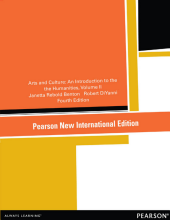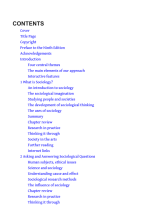Diversity and Inclusion - Conor, Gill and Taylor (2015): Gender and creative labour
3 important questions on Diversity and Inclusion - Conor, Gill and Taylor (2015): Gender and creative labour
Conor, Gill, and Taylor (2015) note that while many policymakers and researchers have presented the cultural and creative industries as 'cool' and egalitarian, others observe that these are highly unequal fields.Part of the problem lies, according to this article, in the unspeakability of (gender) inequality. Which 3 characteristics have mainly caused this problem of inequality?
- Myth of meritocracy.
- Myths of meritocracy and self-entrepreneurial nature of the CCIs render structural inequality 'unspeakable'.
- Happiness over wage.
- There is a prevailing idea within the creative industries that people who love what they do should not complain about low pay.
- Gender fatigue.
- Not only are gendered logics and inequalities still very much alive in the cultural industries, but also 'gender fatigue' (Kelan, 2009).
What are the four main conclusions that we can draw from the article of Conor, Gill, and Taylor about gender and creative labour?
- Overlooked inequality.
- Although many analysts suggests the CCIs promote greater equality and fewer traditional hierarchies, the evidence is to the contrary.
- Class, gender, and racial inequality.
- Women, racialised minorities and the working class tend to be excluded or marginalised in CCIs.
- Informal practices.
- This is the biggest reason for inequality in CCIs.
- It is harder to monitor and address inequalities in informal industries.
- Four effects.
- The effects can be categorised into four themes:
- Informality and flexibility, sexism and exclusion, identity-making and representation, boundary-crossing.
What are the main points of relevance that we can draw from the article of Conor, Gill, and Taylor about gender and creative labour?
- Critique informality.
- They critique the perceived benefits of the cultural and creative industries as informal and flexible sectors of work.
- Benefits of informality are for the companies, costs are to the workers.
- Look beyond intended outcomes.
- We shouldn't just focus on the intended outcomes; instead, we should examine the composition of industries and the actual working lives of the people within them.
The question on the page originate from the summary of the following study material:
- A unique study and practice tool
- Never study anything twice again
- Get the grades you hope for
- 100% sure, 100% understanding































